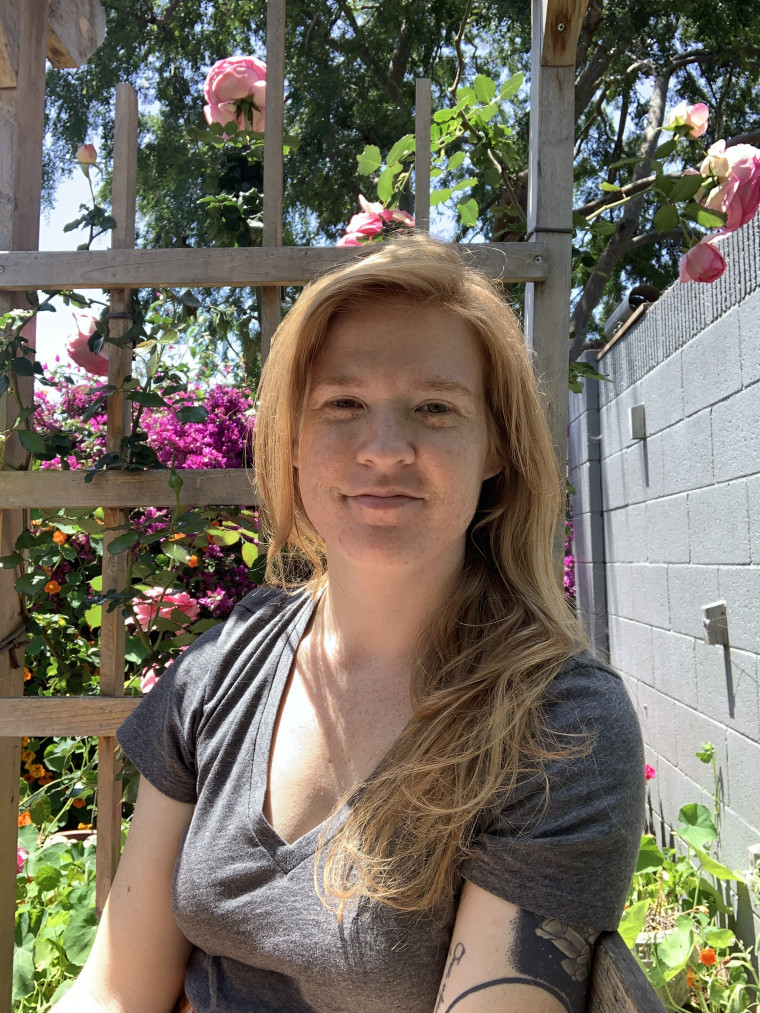Margaret Jordan
L&C’s connections are long-lasting, and far-reaching, and so enormously giving.

Pronouns
Degree and Class Year
Hometown
Current City
Major
Minor
Extracurriculars
Job Title, Organization
Internship
What three words would you use to describe L&C?
What made you want to come to Lewis & Clark?
I fell in love with Portland and the LC campus before pretty much anything else. I was really excited about the option to follow a creative writing track within the English major, and pursued that until I fell into theatre.
What have you been doing since graduation?
I worked for a few glorious years as a dresser and wardrobe supervisor backstage in a couple of regional theatres in Orange County, including Tony Award-winning South
Coast Repertory, until the pandemic started. I did a yearlong stint in retail during the
pandemic and then eventually landed back at South Coast Repertory in their marketing department. I’ve also been writing a lot of fiction when I have the time, and recently made my first pro-market sale of a short story to Fantasy Magazine.
How did Lewis & Clark prepare you for your job?
The professors at LC are world class. My theatre design professor, Michael Olich, had so many connections and so much experience in the industry and was able to offer me such a wealth of knowledge – and he wasn’t the only one. (I just cried in Michael’s office a lot more than anyone else’s!) I always knew that if I was struggling, or hoping to chat about my options, there was someone I could go to.
What would you say is the most important thing you learned at Lewis & Clark?
The aforementioned incredible professor Michael Olich introduced me to the idea of
“collecting dots.” He always told me to never worry about whether or not the
experiences I was collecting with internships and gigs added up to a cohesive Future Path, point A to point B style. The idea is to collect as many experiences as you can while you can, and then connect those dots later. Lewis & Clark was absolutely fantastic at giving me the space and opportunity to do that.
Why did you major in theatre?
I didn’t really put together until halfway through my freshman year that people can (and do) work in theatre and in movies. It was always a distant “guilty pleasure” career, until a friend of mine told me to take a class and see if I liked it. (The class in question was Theatre Lab with Matthew Robins.) I took that class and never looked back.
How do you stay connected to Lewis & Clark as an alum?
The fun answer here is that I have friends from LC that I’m in contact with almost every day – friends that I met on day one, carrying boxes into my dorm and trying to figure out how to keep my door unlocked. But the more sincere, useful answer, I think, is that LC’s connections are long-lasting, and far-reaching, and so enormously giving. I got my foot in the door at South Coast Repertory in 2018 because one of my professors worked there back in the day, and the costume shop manager remembered him kindly. I utilized the Career Center during the pandemic when my resume was in shambles and I was desperate for help, and I will be forever grateful for the assistance I was given. I’ve reached out to professors, recently, to ask questions about industries they’re more familiar with than I am. LC sets you up to have a lifetime of support.
What was your favorite class? How did it expand your knowledge?
I’m hugely torn because there were two classes I took that I still talk about to this day: Films Adapting Fiction with Mike Mirabile, and Russian Literature with Tatiana Osipovich. Both classes had a similar impact on me, in that we were asked as students to examine works of literature through the lens of different languages – the language of film and the language of works in translation. The books we had to read were also works that most literature classes don’t typically assign: Do Androids Dream of Electric Sheep? and The Master and Margarita, Double Indemnity and Eugene Onegin. They were both so much fun, and allowed for so much creative expression outside of the typical constraints of classic literature. (Mike and Tatiana were both hilarious and wonderful, which also helped!)
More Admissions Stories
Admissions is located in Frank Manor House on the Undergraduate Campus.
MSC: 32
email admissions@lclark.edu
voice 503-768-7040
fax 503-768-7055
Vice President of Admissions and Financial Aid
Eric Staab
Admissions
Lewis & Clark
615 S. Palatine Hill Road
Portland OR 97219

